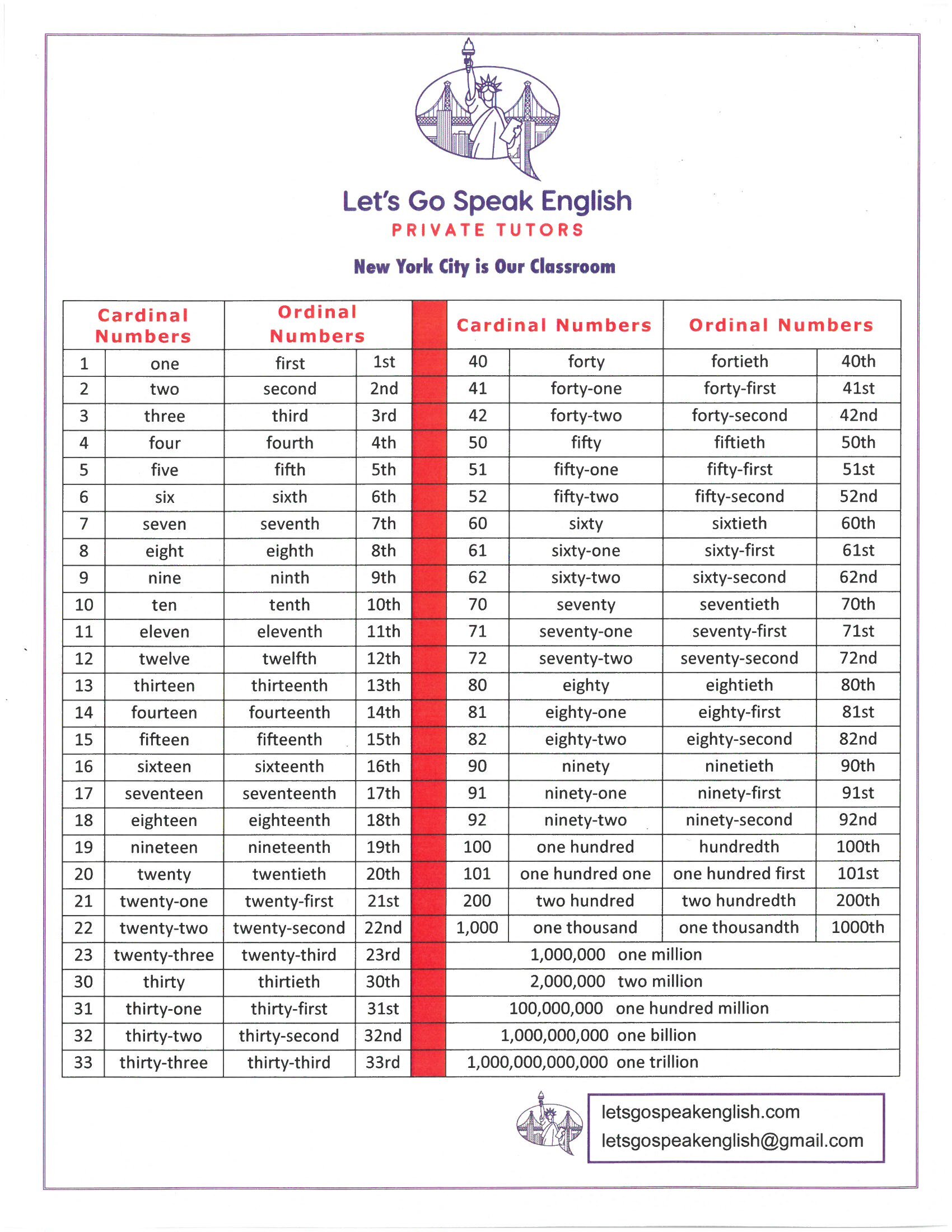All across the United States, people are preparing for one of our favorite holidays: Thanksgiving!
Families are planning their Thanksgiving dishes. Many people are buying ingredients for traditional Thanksgiving foods: turkey, stuffing, gravy, sweet (orange) potatoes and yams, yellow and white potatoes, cranberry sauce, corn, pumpkin and apple pies.
When is Thanksgiving? It is always the fourth Thursday in November.
For Beginner Students:
In English, we have cardinal numbers and ordinal numbers.
Cardinal numbers are used for counting things. They tell us “how many”.
READING 1
For example, Robin will cook for 8 people this Thanksgiving. She will need 4 pounds of sweet potatoes, 5 pounds of yellow potatoes, 1 pound of cranberries, 10 ears of corn, 1 pumpkin pie and 2 apple pies this year. We like to eat leftovers the next day!
Ordinal numbers tell us the order of things, or for a list.
READING 2
For example: First, Robin will cook the cranberries. Second, she will bake the apple pies. Third, she will bake the pumpkin pie. Fourth, she will cook the sweet potatoes with maple syrup, and make mashed potatoes. Fifth, she will prepare the corn. Sixth, she will take a break!
Exercise 1. Write the cardinal and ordinal numbers:
Cardinal Numbers, Ordinal Numbers, Abbreviations (= short form):
a. 1 = one, first, 1st
b. 2 =
c. 3 =
d. 4 =
e. 5 =
f. 6 =
g. 7 =
h. 8 =
i. 9 =
j. 10 =
You can check your spelling in the ANSWERS and our NUMBERS LIST below!
For a complete list of numbers and for more exercise practice, go to these links:
https://www.englishclub.com/vocabulary/numbers-cardinal.htm
https://www.englishclub.com/vocabulary/numbers-ordinal.htm
Exercise 2. Read the texts again. Practice your spelling. Write in the missing numbers and words.
Robin will cook for (k)__eight_ people this Thanksgiving. She will need (l)_____ pounds of sweet potatoes, (m)_____ pounds of yellow potatoes, (n) _____ pound of cranberries, (o)________ ears of corn, (p)_______ pumpkin pie and (q) ____ apple pies this year. We like to eat (r)________________ the next day!
Exercise 3. Now, answer the questions.
s. How many people is Robin cooking for this Thanksgiving?
t. What will Robin cook first?
u. How many pounds of sweet potatoes will Robin need?
v. How many pounds of yellow potatoes will she need?
w. What will Robin cook fourth?
x. How many ears of corn will she need?
y. How many pies will she bake?
z. When is Thanksgiving?
For Intermediate/ Advanced students:
READING 3
The first Thanksgiving was in November 1621 in Massachusetts. One group of colonists - the Pilgrims, who had fled Europe to escape religious persecution - had arrived the previous fall and barely survived the rough winter. In fact, about half of the original Pilgrims had died by spring. During 1621, their neighbors, the Wampanoag tribe of Native Americans, had taken the desperate Pilgrims in hand and taught them crucial skills: how to grow food in the rocky Massachusetts soil, catch fish and hunt indigenous animals.
The Pilgrims survived in the New World due to the help of the Native Americans. So the Pilgrims wanted to thank the Native Americans. The two groups had a big meal together to celebrate gathering the Pilgrims’ first successful harvest. This three-day feast is considered the first Thanksgiving celebration.
Over time, Americans have developed the tradition of “giving thanks” for the good things in their lives on Thanksgiving Day. Some people start the morning donating time and energy at a homeless shelter to help feed people who are in need. Then we get together with family and friends and eat a meal. Many Americans go around the dining table and each person mentions one thing they are thankful for, such as good friends, close family, work and homes. We relax together. The next day, many of us enjoy Thanksgiving foods again – we love our leftovers!
Exercise 4. Read the text above. Answer the questions.
aa. In what year did the Pilgrims first arrive in the New World?
bb. Why did the Pilgrims come to the New World?
cc. What’s the best meaning of the idiom “to take in hand”? 1. to speak directly to; 2. to assume responsibility for; OR 3. to hunt animals.
dd. What’s a synonym for “crucial”? 1. negligent; 2. difficult; 3. essential
ee. What’s a synonym for “desperate”? 1. distraught; 2. inexperienced; 3. hungry
ff. What’s a synonym for “indigenous”? 1. nearby; 2. healthy; 3. native, not brought to the area from another place
gg. What are “leftovers”?
For a complete list of numbers and for more exercise practice, go to these links:
https://www.englishclub.com/vocabulary/numbers-cardinal.htm
https://www.englishclub.com/vocabulary/numbers-ordinal.htm
ANSWERS:
Exercise 1.
a. 1 = one, first, 1st
b. 2 = two, second, 2nd
c. 3 = three, third, 3rd
d. 4 = four, fourth, 4th
e. 5 = five, fifth, 5th
f. 6 = six, sixth, 6th
g. 7 = seven, seventh, 7th
h. 8 = eight, eighth, 8th
i. 9 = nine, ninth, 9th
j. 10 = ten, tenth, 10th
Exercise 2.
k. eight; l. four; m. five; n. one; o. ten; p. one; q. two; r. leftovers
Exercise 3.
s. eight people; t. the cranberries; u. four pounds; v. five pounds; w. the sweet potatoes with maple syrup and the mashed potatoes; x. ten ears; y. three pies; z. the fourth Thursday in November
Exercise 4.
aa. 1620; bb. to escape religious persecution; cc. 2 – to assume responsibility for; dd. 3 – essential; ee. 1 – distraught; ff. 3 - native, not brought to the area from a different place; gg. extra food after you finish eating a meal – commonly eaten the next day


